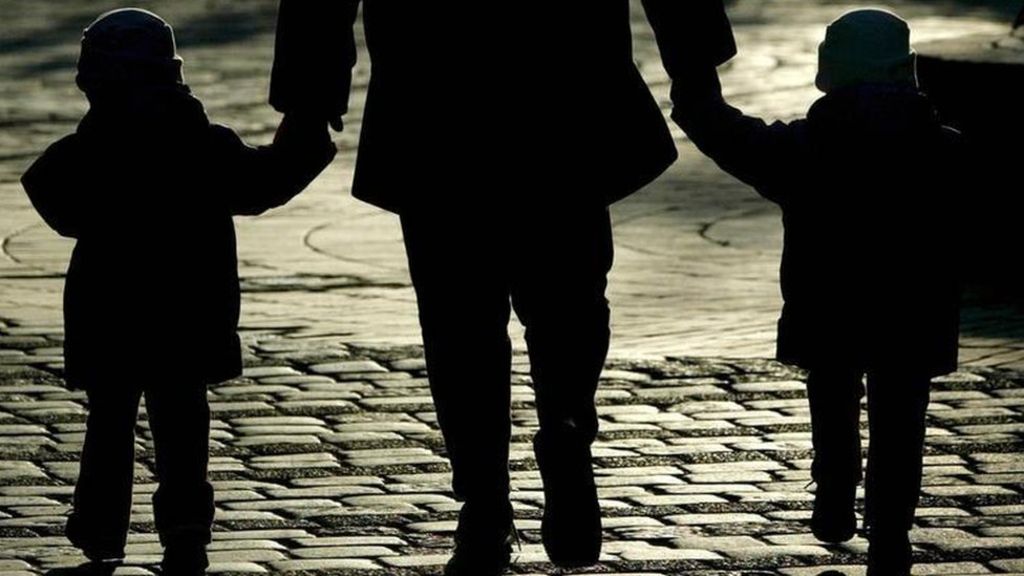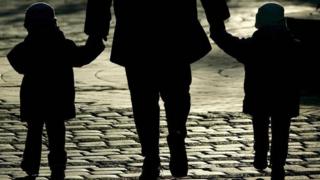Housing crisis ‘creates in-work poverty’ – BBC News

 Image copyright Getty Images
Image copyright Getty Images Poverty among people who are working has risen despite a recovery in the UK economy, a study has suggested.
High rental housing costs mean an estimated 3.8 million workers – one in eight – are in poverty, according to the Joseph Rowntree Foundation (JRF).
It said in-work poverty was up by 1.1 million since 2010-11, and 55% of those in poverty were in working families.
People with less than 60% of median income are classified as poor. Overall poverty was down, the government said.
Its figures suggested poverty numbers had been falling compared to six years ago.
“Since 2010, the number of people living in poverty has fallen by 300,000 but we know there is more to do. We are increasing the National Living Wage and taking millions of people out of income tax, to make sure it always pays to be in work,” a government spokesman said.
Ahmed: Theresa May’s poverty headache
 Image copyright Getty Images
Image copyright Getty Images The government has vowed to focus on those facing the financial squeeze despite being in work – dubbed the “just about managing” families.
In her first statement as Prime Minister, Theresa May, said: “If you’re from an ordinary working-class family, life is much harder than many people in Westminster realise. You have a job but you don’t always have job security.”
‘I am dreading Christmas’
Amelia Graham, a mother-of-two from Liverpool, works for 30 hours a week but says she has no long-term guarantee of work. Her wage is topped up by Universal Credit.
The charity worker says that after paying rent and utility bills, she has just 66 a week left.
“I feel like I am constantly begging and borrowing off my family just to keep things ticking over. I am absolutely dreading Christmas,” Ms Graham says.
“There is no movement in my budget to be able to save and put away.”
Visiting a food bank for help was “embarrassing”, she adds.
Yet, the JRF said that the economy “is not working for low-income families”.
Its report suggested 7.4 million people, including 2.6 million children, were living in poverty despite being in working households. There was growing insecurity underneath the positive economic picture, including rising levels of employment, it said.
“The economy has been growing since 2010 but during this time high rents, low wages and cuts to working-age benefits mean that many families, including working households, have actually seen their risk of poverty grow,” said Helen Barnard, head of analysis at the JRF.
“As it negotiates Brexit, it is vital that the government does not allow its focus to slip from the domestic concerns that make a huge difference to people who are just about managing. This report shows that people on low incomes cannot rely on economic growth and rising employment alone to improve their financial prospects.
“Families who are just about managing urgently need action to drive up real-term wages, provide more genuinely affordable homes and fill the gap caused by cuts to Universal Credit, which will cost a working family of four almost 1,000 per year.”
There is better news in the report on pensioner poverty and the number of people in workless families in poverty, which are both improved compared to 10 years ago. Attainment levels among young people have also risen compared with 10 years ago and five years ago.
The lone parent employment rate is improved, but workers in poverty was worse than 10 and five years ago.
 Image copyright AFP/Getty Images
Image copyright AFP/Getty Images Analysis of the recent Autumn Statement by the Institute for Fiscal Studies (IFS) suggested workers would feel the squeeze on pay for more than a decade – earning less in real terms in 2021 than they did in 2008.
The Resolution Foundation also suggested that the biggest losers between now and 2020 would be lower income families, with the poorest third likely to see incomes drop.
The JRF study suggested that in-work poverty was driven by housing costs, especially in the private rented sector, where the numbers living in poverty had doubled to 4.5 million in a decade.
This was the key factor behind London recording the highest poverty rate at 27% – 6% above the UK average, according to the study.
A recent report by property agent Savills forecast that rents across the UK would rise considerably faster than house prices over the next five years. It predicted that rents will go up by 19% between now and 2021, while house prices will only rise by 13%.
| House prices v rents | ||
|---|---|---|
| Year | House prices | Rents |
| 2017 | 0% | +2.5% |
| 2018 | +2% | +4% |
| 2019 | +5.5% | +5% |
| 2020 | +3% | +3.5% |
| 2021 | +2% | +3% |
| Five year total | +13.1% | +19% |
| source: Savills | ||
The charity called for more affordable housing to be built, alongside the reversal of various cuts to welfare and the end of the freeze on working-age benefits.
TUC general secretary Frances O’Grady said: “A fair day’s work should mean a fair day’s pay. But wages are simply too low, and millions are struggling to afford the basics, even when they are working hard.
“After the financial crisis, UK wages fell further than in any other developed country except Greece. It is time for employers to give their staff fair pay and decent hours, while the government should lift the public sector pay cap and invest in our economy.”
The chief executive of Child Poverty Action Group, Alison Garnham, said: “Since 2010, the poverty gap – the distance below the poverty line that the typical family living in poverty finds themselves – increased by 13%.
“A typical family under the poverty line is now 57.40 per week short, after housing costs, of the official poverty line. Parents in poverty are more deprived than they were at the start of the financial crisis.”
Read more: http://www.bbc.co.uk/news/business-38219881